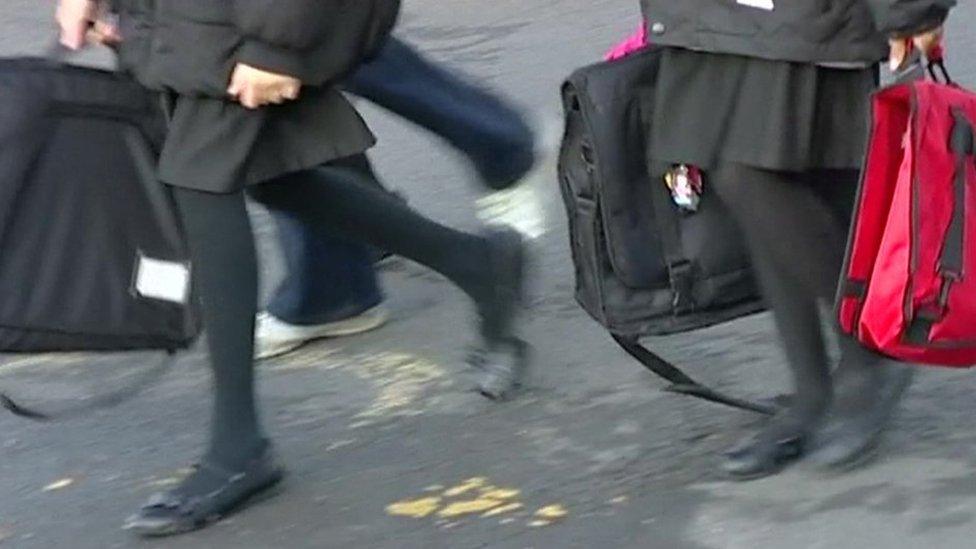Schools 'to drop gathering nationality data'
- Published

Campaigners said schools should not be asking about pupils' nationality
Privacy campaigners say the Department for Education is to drop the controversial requirement for schools in England to collect data about pupils' nationality.
The Against Borders for Children protest group had warned the information could be used to check on the immigration status of pupils.
Campaigners hailed it as a "victory" after a boycott and legal challenges.
The Department for Education would not confirm reports of the policy change.
A report in Schools Week, external says schools will be told in the next few weeks they no longer have to collect the data.
But the Department for Education has declined to deny or confirm that it is about to shift its position.
Immigration data
Privacy campaigners, civil liberties groups and teachers' unions had criticised the introduction in 2016 of a requirement for schools to gather data about pupils' nationality and country of birth.
There had been a crowdfunded legal challenge and campaigners claimed that up to 200,000 people had refused to give information as part of a boycott, supported by the human rights pressure group, Liberty.
Opponents had warned that the information gathered by schools would be shared by other government departments and used in immigration cases.
The Department for Education had rejected this - arguing that the information would only be used for educational purposes, such as tracking the progress of pupils from different backgrounds.
But campaigners claim they have succeeded in reversing the requirement for schools to gather such data.
Alan Munroe, a primary school teacher and spokesman for Against Borders for Children, said it was a "massive victory" and showed that "schools should be a safe learning environment for every child".
Gracie Bradley, policy officer at Liberty, said it was a victory for "teachers, parents and campaigners who stood up and refused to comply with this poisonous attempt to build foreign children lists".
- Published19 January 2017

- Published26 September 2016
